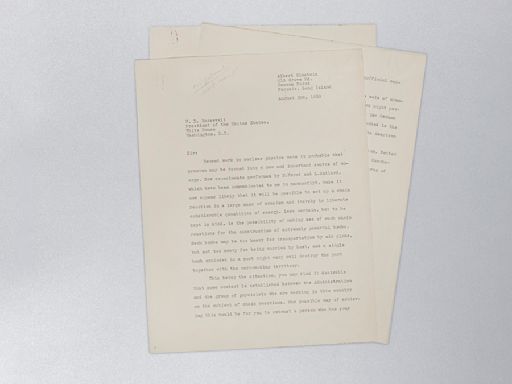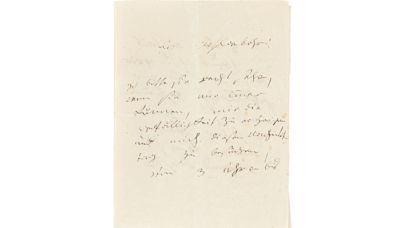Search results
Best known for developing the theory of relativity, Einstein also made important contributions to quantum mechanics, and was thus a central figure in the revolutionary reshaping of the scientific understanding of nature that modern physics accomplished in the first decades of the twentieth century.
4 days ago · Albert Einstein (born March 14, 1879, Ulm, Württemberg, Germany—died April 18, 1955, Princeton, New Jersey, U.S.) was a German-born physicist who developed the special and general theories of relativity and won the Nobel Prize for Physics in 1921 for his explanation of the photoelectric effect.
Biographical. Questions and Answers on Albert Einstein. Albert Einstein was born at Ulm, in Württemberg, Germany, on March 14, 1879. Six weeks later the family moved to Munich, where he later on began his schooling at the Luitpold Gymnasium.
2 days ago · Albert Einstein - Physics, Relativity, Nobel Prize: After graduation in 1900, Einstein faced one of the greatest crises in his life. Because he studied advanced subjects on his own, he often cut classes; this earned him the animosity of some professors, especially Heinrich Weber.
Albert Einstein. The Nobel Prize in Physics 1921. Born: 14 March 1879, Ulm, Germany. Died: 18 April 1955, Princeton, NJ, USA. Affiliation at the time of the award: Kaiser-Wilhelm-Institut (now Max-Planck-Institut) für Physik, Berlin, Germany.
Albert Einstein was a German-born theoretical physicist who is widely held to be one of the greatest and most influential scientists of all time.
Albert Einstein was one of history's greatest thinkers. Although he isn't really known as an inventor, his ideas formed the basis for some of the greatest inventions ever devised. Here are a few of the man's most revolutionary discoveries.
Albert Einstein was a thinker ahead of his time. Born March 14, 1879, Einstein entered a world where the dwarf planet Pluto had yet to be discovered, and the idea of spaceflight was a distant dream.
The Nobel Prize in Physics 1921 was awarded to Albert Einstein "for his services to Theoretical Physics, and especially for his discovery of the law of the photoelectric effect". Albert Einstein received his Nobel Prize one year later, in 1922.
Albert Einstein, (born March 14, 1879, Ulm, Württemberg, Ger.—died April 18, 1955, Princeton, N.J., U.S.), German-born Swiss-U.S. scientist. Born to a Jewish family in Germany, he grew up in Munich, and in 1894 he moved to Aarau, Switz.


